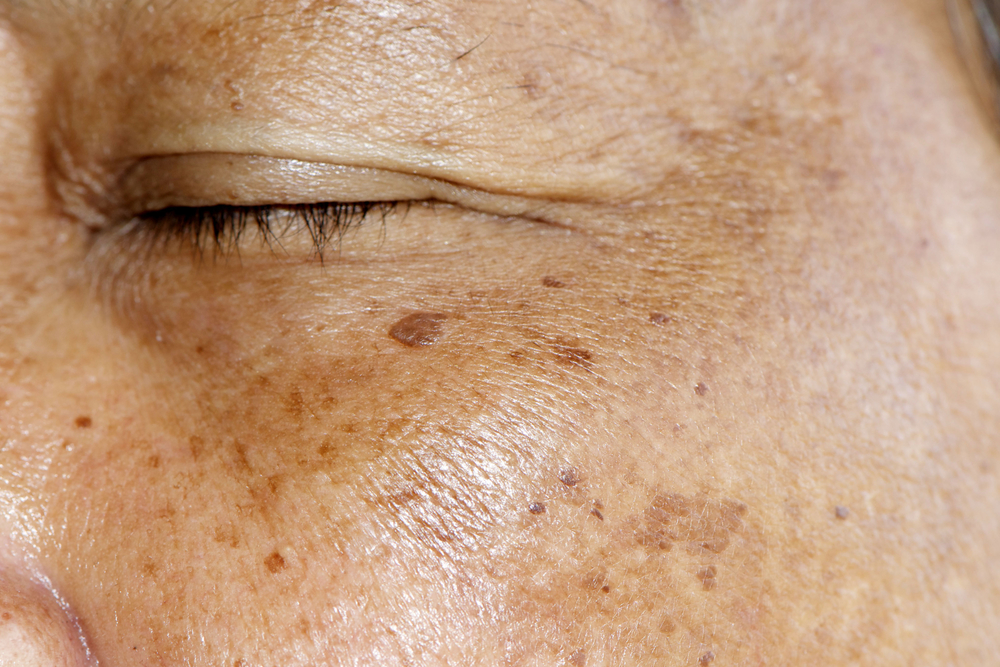Are you troubled by dark spots on your face? These dark marks, or hyperpigmentation, are common for all skin types, however, people of color are more likely to have them. Let’s take a closer look at what can cause them, how to treat them, and what else you should know if you’ve noticed these spots on your face or other areas of the body.
Hyperpigmentation can occur both in small areas and in larger marks on the body, especially the face and hands. It is very common and usually not a symptom of more serious conditions, and typically includes sunspots, melasma and other post-inflammatory hyperpigmentation.
Sunspots, as their name suggests, are caused by exposure to the sun, while melasma is caused by fluctuations in hormones often related to pregnancy. Post-inflammatory hyperpigmentation occurs when the skin is infected or has been injured. Acne and other skin conditions can leave dark spots on the skin even after they are healed.
If you spend a lot of time in the sun, you’re more inclined to develop hyperpigmentation. Inflammation can also increase melanin production and therefore increase your risk of hyperpigmentation. Melanin is the pigment in your skin that determines its color; this means hyperpigmented skin contains more melanin than the surrounding skin.
The use of oral contraceptives and being pregnant can increase your risk of developing dark spots, as well as taking drugs that make your skin more sensitive to sunlight. People with darker skin tones are also more vulnerable to changes in pigmentation.
A dermatologist can tell you the cause of your hyperpigmentation and whether it’s a cosmetic concern or something that should be checked into further. Hyperpigmentation can be improved with topical medication, including hydroquinone or creams containing topical retinoids. However, it’s important to know these treatments may take several months to lighten dark spots. Your doctor may also recommend chemical peels, laser treatments or dermalinfusion to help reduce the appearance of hyperpigmentation.
To prevent hyperpigmentation, be sure to stay out of the sun as much as you can, especially during peak sun times, and use sunscreen with an SPF of at least 30 daily. Some dark spots may fade when no longer exposed to sun; others may not fade completely even with medication. It’s important to note that dark spots are usually not a cause for concern, but if you have any questions, consider speaking to your doctor. The following resource, What Are Those Dark Spots? And How To Treat Them, by Zapatat, talks more about this common skin concern.










